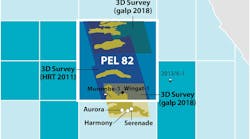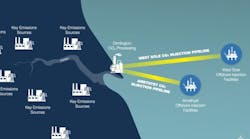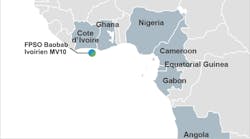Offshore staff
WASHINGTON -- The Bureau of Ocean Energy Management, Regulation and Enforcement (BOEMRE) and the National Oceanic and Atmospheric Administration (NOAA) announced that they have signed a landmark Memorandum of Understanding (MOU) to increase their coordination and collaboration to ensure the environmentally sound offshore energy development.
“BOEMRE and NOAA have enjoyed a long and productive relationship, but there is room for improvement. We can and will broaden and enhance the communication, cooperation and collaboration between our agencies,” said BOEMRE Director Michael R. Bromwich. “This MOU creates new mechanisms to ensure the early and close coordination of BOEMRE and NOAA science and agency priorities to promote stronger environmental stewardship and stimulate greater efficiency in developing and implementing Outer Continental Shelf (OCS) energy policy and conservation.”
“This agreement improves how we coordinate and collaborate to ensure energy resources are developed in an environmentally sound manner that protects marine life and ecosystems under our respective authorities,” said Jane Lubchenco, Ph.D., under secretary of commerce for oceans and atmosphere and NOAA administrator. “We look forward to continuing to work with BOEMRE to ensure NOAA science informs offshore energy development and oil spill response.”
This MOU, which is consistent with recommendations from the National Commission on the Deepwater Horizon Oil Spill and Offshore Drilling, specifies how BOEMRE and NOAA will cooperate and coordinate by:
1. Defining specific processes to ensure effective and timely communication of agency priorities and upcoming activities
2. Identifying and undertaking critical environmental studies and analyses
3. Collaborating on scientific, environmental and technical issues related to the development and deployment of environmentally sound and sustainable offshore renewable energy technologies
4. Increasing coordination and collaboration on decisions related to OCS activities, including with respect to research and scientific priorities.
Other key elements of the MOU include meeting regularly to develop potential ways to appropriately align regulatory and decision-making processes and identify the best available science to support future regulatory decisions; increased collaboration on oil spill exercises and response issues; and annually evaluating activities and progress related to National Ocean Policy objectives.
05/23/2011




